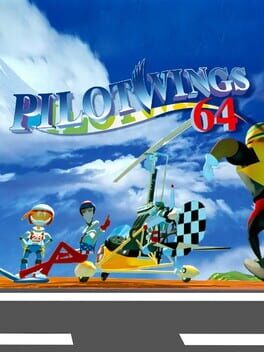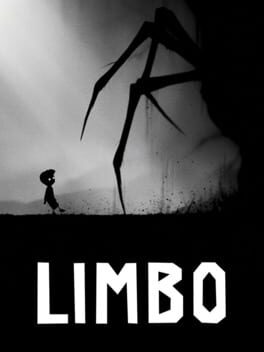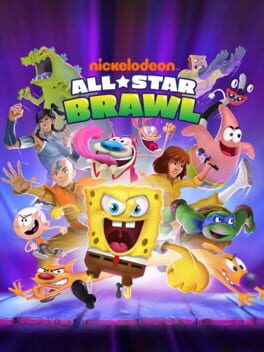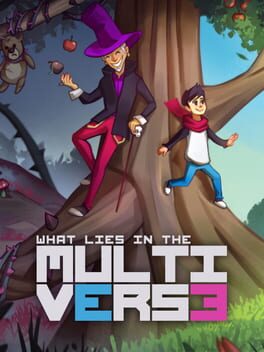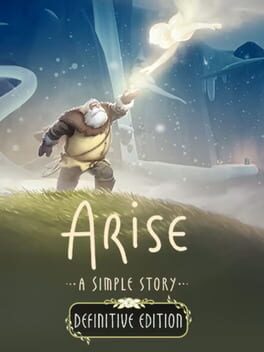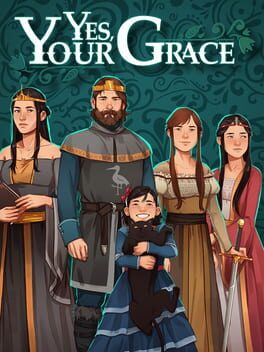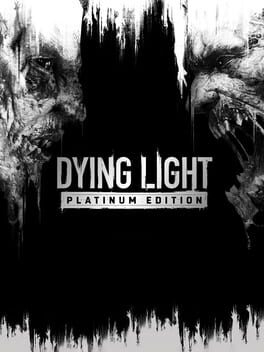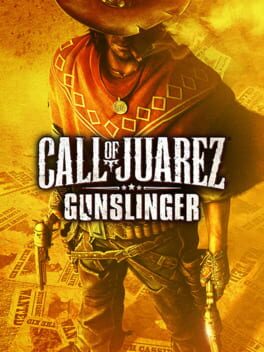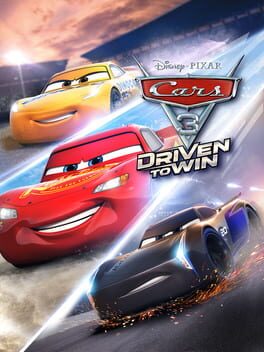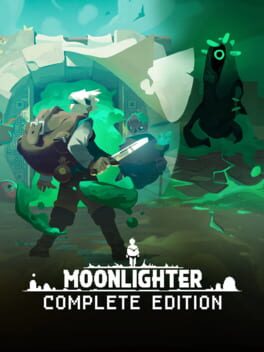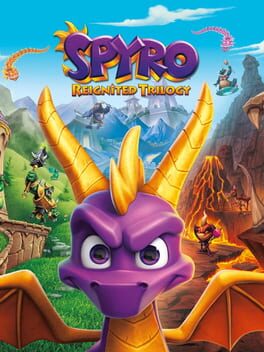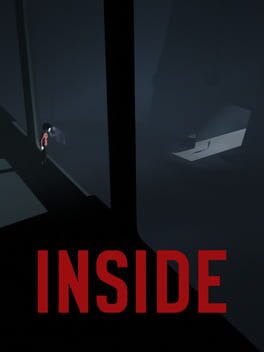noisepond
Ocarina of Time stands in the class of games that will receive ultimate praise until the end of time, and rightfully so. Hailed as an almost perfect game for the time of its release, I would like to believe that is close to the truth. Ocarina of Time feels as if it's the foundation for how to make an RPG-esque adventure game. The worthwhile and lengthy narrative brings life to the standard hero's tale with a great cast of characters and world-building. By the time I finished the game, the many sunken hours felt worth it. The game's progression and climactic build had me attached to every play session. I knew what was coming, but I still itched to see it all happen. Although much of the layout of Hyrule is dated by today's standards, it still felt fluid and exciting to explore with fresh eyes. In classic Zelda fashion, there are hidden secrets everywhere. So, even if im staring at low-poly textures, it's with a fun purpose. The downfalls to Hyrule start to arise once you have had your fair share of the game. Land starts to feel a little bare or sluggish to traverse. At the point of scouting for all the heart pieces and gold skulltullas, the game also loses some flavor. Finding them all is a cryptic hassle, and there's little reward to even doing so outside of personal satisfaction. Cryptic hassles are also the main reason I couldn't edge this score to a 9/10. There are specific points of progression in a main or side quest where the game will throw a one-liner riddle at you to solve. If you wanted, you could spend hours mashing every button with every item or talking to every NPC in the game just to get an idea of what to do. Most of the riddles are fun to solve, but without a guide or already knowing answers from experience, solving a couple here or there can spoil some parts of the game. Learning to bottle the blue fire broke my brain for the worst. Honestly, my favorite puzzle/riddle was figuring out the entirety of the water temple, as it's one giant integrated puzzle box. Outside of the obvious metal boots dilemma, the Water Temple has received way too much hate over the years. It's also dripping in atmosphere, pun intended. Gameplay-wise, all I can say is it plays pretty darn well. Everything is pretty simple and intuitive, and for an early beta of a fully fleshed-out targeting system, the z-targeting does a fine enough job. Only in select moments with many enemies or multiple points of focus does the z-targeting become a hindrance. I'm talking about you Bongo-Bongo!!! For a first dip into 3D Zelda, they pretty much hit the controls and handling on the head. And what can be said that hasn't been about the music and its integration into the narrative of the game? Hot diggity, this game is pretty good.
1996
As one of the most praised titles in gaming history, Sumer Mario 64 will never falter in bringing fans back to enjoy the ride. I did not grow up with an N64 and first played this title as a part of the 3D All-Stars Package deep into the void of COVID-19. Coming back now to complete the 120-star challenge on the Switch's Nintendo's N64 simulator my thoughts remain mostly the same. I like Super Mario 64, but I don't love it. I could never focus any of my complaints about this game on the developers. The game is a launch title transitioning a 2D franchise into a previously unexplored 3D world. The game was always likely to be too bold as a platformer for the tech backing it. One major technological fault is the game's camera system, which is, by far, the most obnoxious game-killing feature. Treated are we to such a freeflow selection of jumping moves in Super Mario 64 and objectives to challenge you to move in all directions. Access to such fluidity of movement is ideal until the user tries to make a precision jump with a handicapped viewpoint. Why are the viewpoints limited? The game's third-person camera does not sufficiently adjust on the spot. This occurrence happens at least at one specific map point on most levels. And as users progress to stages where they can fall easily off the map, they will be frustrated after the camera fails them. Some of the basic polygonal models to jump on or off of can also produce awkward results with some of the slipperiness of Mario's movements. Again, this is likely due to the fault of the system's technology and it not having the capacity to produce bigger maps with more complex models. What I love about Super Mario 64 is it is easy to pick up and complete on any given weekend. The design for the time is also creatively pieced together. The design model of providing different objectives amongst the same 3D course is fun and forces you to traverse every corner of the map by varying means (Some levels do this a lot better than others). The artistic detail in each level can lack a little beauty and flair, but usually, gamers returning to their stomping grounds will be too focused on the precision movements to care as much. I want to shout out the Dire, Dire Docks theme! What a serene banger. It made up for my lack of motivation playing both the aquatic-based levels. Super Mario 64's swimming mechanics are okay, but they don't match up to the movement satisfaction provided by triple jumping and wall kicking. The rest of the soundtrack is good enough to immerse you in the cornball world of Super Mario 64. The games' power-up mechanics could have been more fruitfully designed, but again, with the limitations of the N64, making this happen would've likely taken another year of development. I love the idea of the flying cap, but managing the flight controls is like trying to ride down a mountain bike path on a razor scooter. You don't know where you will end up despite your best intentions at maintaining control. Similar awkward mechanics are why Super Mario 64 will never be my go-to treasure of 3D platformers to pull from. It's fun adjusting to the movements and learning to traverse each level efficiently, yet little annoying moments remain around each corner that take you a bit out of the game. For the time, Super Mario 64 was probably one of the best compact games ever released. But I don't personally rate games on how they presented themselves in their era. I only have an opinion on how I enjoy them now. And as great as this game is, many other platformers, including in the Super Mario franchise, would be considered foremost as my deserted island option.
1996
While attempting to expand my familiarity with Nintendo 64 games, I thought I would start with a title-release game that wasn't the almighty Super Mario 64. At the time, I could see people having a blast back in the day with this game with its mix of open-world exploration and tough precision challenges. However, exploring empty polygonal terrain with janky cameras isn't as appealing through a modern lens. I found more worth in completing the missions with a gold medal ranking. There isn't an incredible amount of content to Pilotwings 64, so learning to master the controls for each vehicle is how to get your money's worth. The controls are pretty straightforward and match most arcade setups, but mastering the physics of each mode within the game's environments will take some time. The jetpack and gyrocopter missions are some casual fun. Though, the hang glider is pretty stinky. That thing after the first mission is a slog, and landing it with accuracy feels like trying to guess a coin flip correctly five times in a row. I ignored the final hang glider missions simply because they weren't as fun and more obnoxious than challenging to get through. It's a shame because the hang glider missions feature a serene little tune instilling calmness in such a depressing world (the real one, not the game). However, I could not remain calm after hang-gliding for four minutes on each mission just to get no points by crashing the landing. The extra unlockable modes do provide extra gameplay length and charm. I found trying to get perfect bullseyes with the bonus cannon vehicle intuitively satisfying. One thing I strongly dislike about Pilotwings 64 is it will find ways to create dead time near the start or end of some missions. You will be eager to replay or skip a mission but will get stuck in some lengthy animations before moving on. With no nostalgia bias, the game is still enjoyable, to an extent, even with these lazy quirks. Land that gyrocopter in the middle of the landing strip for maximum points! Or park this game in a middle-of-the-road category and leave the keys in the vehicle.
2010
This review is tough. I like Limbo, and I bought the game probably a year or two after the game was originally released in 2010. Back then, the game was hailed as an indie classic for its atmosphere and abstract storytelling. For one reason or another, I never actually came around to playing the damn game all the way through until thirteen years later after repurchasing it on the Switch. Better late than never. The problem is I had already reaped the rewards of the latest inspirational game from Playdead (The Developers behind Limbo), Inside. Inside plays out fundamentally almost the same as Limbo. You play as a young boy in a 2D atmospheric puzzle platformer as you attempt to reach some enigmatic goal. In each game, the environment provides context clues to the world in which you exist. These clues are for the player to conclude from, as nothing is ever overtly revealed throughout the game. The gameplay in each is also the same. You move left to right with two action buttons to work with. It's as simple as it gets. I loved Inside and appreciated its narrative fluidity while lacking a single word of dialogue. The setups for each puzzle felt well-intertwined with the environment, and for a simple game, it was a joy to play through. My only critique, mind you, I am a lot harsher in my rating system than most, was that I wanted more of the game. It didn't quench my thirst completely and ended a little abruptly. I almost feel like an asshole for saying that because I truly loveed that little gem of a game. So, as I came back to Limbo, still not far removed from my experience with Inside, it was hard to block out the notion that this game could walk so that Inside could run. Limbo lacks the same level of atmosphere and charm that brought me to bliss in Inside. The puzzles are also a tad bit weaker and don't necessarily provide greater detail to the environment, especially in the latter half. The game is also considerably shorter and provides less narrative intrigue after a point. Although the sound design is spot on and makes each death you create a small delight, the game seriously lacks a soundtrack for complete immersion. I legitimately thought I accidentally muted the game at points while I took longer on specific sections. Weaning off my complaints, Limbo is an enjoyable game while it lasts. Comparison is the thief of joy, and unfortunately for Limbo, thier bigger brother took me out for some beers beforehand.
With the release of Nickelodeon All-Star Brawl 2 hanging around the corner, the great folks at Nickelodeon rightfully placed this title for sale on the Nintendo Switch. I will take a stab at trying any game for five dollars, especially a Nickelodeon Smash Brothers clone that enticed an esports community upon release. But then I questioned aloud, "Five dollars for a title from 2021?". The concerns were real, but I am always down to smoke a bowl and play lackluster games for the cheap. And boy, is this game lackluster! I'll start by saying that the surface-level controls and fighting mechanics are okay. There is enough complexity to comboing an opponent to reward invested players. The problem is you likely won't want to invest in different fighting playstyles/characters because the game fails on most levels to support its identity. Characters, stages, and mechanics are the groundwork for any fighting game. I guess in the year 2021, that's all this studio could muster up before shipping it out to a paying audience. This game features little to no extra content, even after the updates. The pitiful arcade mode is a joke and is pretty much the same as playing any CPU in any basic match. Instead, in arcade mode, you have the privilege to unlock cruddy-looking profile emblems and music tracks. These unlockables are worth nobody's time and get spit on by those from every Smash game. There are barely any costumes to spice up your Main or to differentiate yourself from an opponent with the same character. The sports mode is also a joke, and similar to arcade mode, it felt tacked on in a day to meet some standard of quality. There's no extra content outside these piss-poor attempts; unless you want to count online. Yeah, online... good luck finding a match these days. Everyone got over the novelty of seeing their favorite cartoon characters fight in a week and then deserted this shell of a game. I could only find online lobbies with a minimal amount of randoms who were also bamboozled into coughing up five bucks. The matches weren't even that fun. All these stiff characters fight as if they are on speed surviving a Black Friday Sale. The developers tried to mimic Smash Bros. Melee's quick inputs and crazy combos. It's a great idea. It's just simply rushed and doesn't come close in execution. The fluidity of the gameplay is wonky, and characters have no natural weight at high percents. Smash Bros. always nailed down the satisfaction of killing your opponent off-screen, while killing in Nick All-Star Butt Brawl has less appeal than eating a raisin. And harping on appeal, what is the presentation of this game? The Game's UI and artwork are horrendous. Its' basic coloring book appearance burns my eyes after a while. Jump in a match while you can, or the game's display will shut down your switch after a minute. In the end, Nickelodeon All-Star Brawl was built by a small dev team on a tight budget and short timeframe. A lack of time and creativity killed the project before it could gain momentum. I can't fault them significantly in an attempt to tackle such a tough goal. All I know is moderately smooth controls aren't enough to build longevity for an online fighting game. The two-person switch player base on a Friday Night speaks for itself.
The charm, humor, and creative exploits of shifting between parallel worlds will keep you riding well enough through this indie title. Even the story begins with enough intrigue and character personality to invest the player. Unfortunately, while shifting from moments of humor to somber morbidity in the latter half of the game, you grow tired of a narrative that feels the need to overcompensate. The game invests too much time trying to reach a dynamic altitude of emotions while mostly missing and dragging its heels along the way. At this point, the development of each character feels stagnant and underwhelming. The conclusion doesn't have much staying power and feels remotely unfinished/unrewarding. The gameplay and level design work well enough, but it's all pretty commonplace. The handful of levels where you lose your ability to shift between worlds are lacking in their execution. It's the game stripping you of some fun with boring puzzles and no abilities to entice creativity. On a positive note, the collectibles and hidden NPC moments are cute and well spread out. Also, the 8-bit artwork/design is solid, and there is legit anticipation for each chapter's feel. In the end I respected the developer's attempt and had some fun at the start with the mechanics and world building. Still, I don't have confidence I'll remember much about this title later down the road.
Arise: A Simple Story is exactly that, a simple story. The intellectual who reviewed this game before me compared it to the movie "Up" and damn that fits all too well. Like in Up, you grow attached to an old man venturing through unorthodox paths to tend to his forever-enduring bond with his lover. The most hard-hitting moments are absent of dialogue. Each chapter represents a pivotal moment in the character's life and the artwork, level design, and music all come together to encapsulate the emotional moment with pinpoint accuracy. The time control mechanic is cute and adds perspective beauty to all the environments. What stops this game from sinking its claws into your long-term memory are some of the fine-tuned details that uplift your standard title. Unfortunately, the camera's movement and your character's fall damage are inconsistent during platforming segments. While the game is pretty easy and is super safe with its checkpoints, dying in key moments will tamper with your attachment to one of the game's strengths, melodic pacing. Associated with dying is Arise's weird blend of following one-note linear paths all while enticing exploration for collectibles. It's a good idea, it's just that the mechanics can be dissuasive towards trying to find them off-the-beaten-path. The collectibles are cute hand-drawn images providing some context to your character's past, but the game needed to take a bigger leap with this idea. Most of the drawings provide very little in the way of adding narrative perspective and don't feel as rewarding to collect. I would've also loved a more interactive and established-level hub that adds more definition to the title. The game is pretty short and there's nothing to stop you from speed-running through it outside of your willingness to physically stop and soak in the moment. An adventurous level hub would level out the pace from chapter to chapter. Also, more levels and pivotal life moments, in general, are needed to pump up the game's narrative length. The last 2-3 chapters aren't enough to express one's second half of life. The gameplay could've also proved to be more challenging or thought-provoking to keep players more intrigued with their progression. Arise is as advertised in its simplicity, but maybe the developer's willingness to step out of their comfort zone would've proved quite fruitful. Nevertheless, this was the first game crafted by an amateur game studio, so props to them for the creativity and success.
2020
This is a resource management game with an enticing enough GOT-esque narrative to convince you that you're in for a bit of a treat. Who wouldn't love to debate internally over making complex resource decisions that have an ultimate impact on the welfare of your people? I wanted that so bad! This game tries that with hellishly boring mechanics and a facade of meaningful choices. I will be the first to admit that I struggled to finish this game. Allocating the correct resources or agents to send over peasant requests was tricky at times, and not because the game's naturally difficult. Rather, the game failed to convey what actions should take priority to succeed. The path to success is so vague and frustrating that it becomes a guessing game on when to make certain decisions. There's not much strategic tinkering and intuitive decision-making needed to cross the finish line. I would know, having barely scraped by with any amount of resources till the end of the story, then winning with ease. There are a couple of climactic battles the game props up as crucial moments you have to prepare for. It's all a lie! and it pisses me off because they completely invalidate the player's choices and attempt to critically maneuver through each week/level. Once that curtain was pulled back in the first battle, I deliberately tried to do the least amount of things possible with the least amount of resources to try and see if I could still win the final big battle. Spoilers... I did (To start I truly thought I had no shot). The game shoves a bunch of, what seem to be, necessary objectives to protect your castle and if you do absolutely none of them the outcome is not affected at all. These static outcomes might be easier to inhale if the decisions leading up to them weren't the most integral part of the game. And with the menu mechanics and background environments being as minimal as they are YOU NEED those decisions to matter or influence outcome. Otherwise, the game is basically an on-rail text scroller in a Halloween costume. The early moments can be partially satisfying, but once you realize the gameplay and strategy don't remotely evolve it develops into a chore. I felt as if I was speed-running the last third of the story as there was legitimately little to do and again no strategy to be had. There are some cute family ties and small character moments that soften the monotony. Still, your brain will be smooth after this experience.
I have invested many hours into Dying Light's zombie apocalyptics playground. What kept me around was the atmosphere and gameplay mechanics that shine bright among many of the game's faults. What also kept me around was completing every single quest in the main game and the DLC content. With the Platinum addition, you will not find any trouble getting lost within a slate of objectives for better or worse. The Following DLC is the PEAK of satisfaction one would get playing this game. The map, driving mechanics, detailed new environments, and main quest all provide more points of interest than Dying Light's main narrative. However, the rest of the DLC is pretty mediocre. Hellraid is cool at a glimpse and makes you appreciate Dying Light's aesthetic in a fantasy dungeon setting. Yet, the gameplay is too repetitive and one-note; you will be itching to get back to a world of parkour and grappling hooks. Speaking of... traveling from point to point on the main map is half my satisfaction with this game. The controls are half smooth and half janky, enough to have fun with (Without causing too many headaches), and you feel almost grateful the game lacks any sort of travel/spawn system. I also think this game's RPG elements and skill trees are well done in that you are treated well for putting in the hours and leveling up your character, without feeling overpowered. The game simply gives you more liberty to successfully kill zombies and get around, which is the whole point of this game. And it's the whole point because you will not be sucked in by the main narrative of Dying Light. Outside of some key mission plots/set pieces, the game lacks some drive in the writing room. It doesn't help that most of the characters in Dying Light, including the protagonist, are not particularly interesting. In fact, you will even get annoyed by some of the dialogue outbursts of your character and how the game will try and force emotional sincerity in some of their lines. Some other issues I have with this game include the copy-and-paste character models (pertaining mostly to the main game), the janky jump/climb mechanics leading to plenty of fall deaths, constant knockdowns while fighting, the lack of unique environments, and the loss of XP after dying (don't think it's needed when leveling up is not overpowered). Dying Light provided one of the more tense zombie fighting experiences I have had in a second. This game gets an extra point simply for the contrast in its Night Mode. Nothing gets you sweatier than seeing the sun start to set while you're in the middle of finishing up a main quest. It's those types of moments that make this game. You will find ways to pave your own path of enjoyment when the writers fail to provide one for you.
With no experience with this franchise, I was pleasantly surprised by the satisfactory arcade shooter mechanics of this game. It's straight and to the point, pulling from classic gameplay tropes like bullet time, auto-targeting, and skill trees. The short story mode with its Western punchy narrative plays out in vignette-style levels that each take a similar amount of time to beat as an arcade machine shooter with a handful of quarters. The campaign covers the lure of Western vigilantes, and the world's aesthetics and SFX sounds are there to match. This game is a fun shoot-and-run type of game to start and catches you off guard with a couple of quirks here and there. I would've loved more gun and enemy types as the shtick can feel a little tiring if you play the story through all at once. Also, a cover feature or a reason to use the world around you for a strategic approach would be nice. You are a bullet sponge and can't avoid getting hit. Even on the hardest difficulty this game isn't remotely difficult, outside of a couple of bosses, and your tactics rarely need to change. The lore of the old-timey Western world was cute, but names get crossed over so fast and levels are so quick that you kind of forget what happened in previous levels. A little twist ending is nice, but outside of the reveal, there's no satisfactory dessert to feed on for completing the story. The arcade levels were fun and proved to be the most challenging aspect of the game if you're in search of full completion (3 stars on each level). Prepare for some trigger finger fatigue after all your level resets. The dueling mode Is pretty weak and in general, the dueling mechanics could use a little reimagining. I had some fun with what the game was, but near completing all the achievements I was ready to move on. For the price, any casual gamer will probably have a good time. You just probably won't ever return much once you've had your fill.
I bought this on a whim because it was dramatically on sale, and I recalled the good old days when I used to have fun with licensed games. I completed all the Hall of Fame skills (Basically unlocking everything), and I can safely say this is a mediocre game with potential. The racing mechanics and controls are pretty smooth overall and my favorite part of the game. Content-wise, the absent story and lack of standout features outside the simple game modes give the game no return value. The four main/master races are not even that fun or memorable. Classic rubber band AI is here for the worse, and on harder modes, you will make one wrong move and land in 8th place instantly. There are simple boring tricks tricks to stay ahead of most game modes. The Takedown mode is way too easy and serves no purpose outside of exploiting it to unlock several skills (likewise with multiplayer). The trick mode is okay, but there's no incentive to do different tricks, and our trick toolbox is very limited. The best lap mode is fun simply out of difficulty and being forced to learn the perfect line of a track (WOW! Almost like a real racing game lol). Still, this mode also loses points because the first driven lap is useless. It doesn't start you with a full turbo meter to save any time to start. Instead, you have to waste that first lap to build up your whole turbo meter to then attempt the game mode you set out to play in lap 2. Better characters, performance layouts, and customizable skins would've helped liven up my character selection process. The main menu and the end race announcements/screen grow stale fast. My whole second-half experience with this game was while listening to music. There's not much to be enjoyed by the game audio. I'll be honest, I don't care too much for the Cars series, and I am an adult who knew picking up this game was a joke. In my time, I did have minor points of intrigue and fun, and collecting all the skills was a decent little venture away from the hell that is life. I gave the movie a 4/10 and felt the same overall on the game. It's got smooth animations and decent track layouts but no overall tight structure to keep the experience all glued together in an enjoyable package. It gets old, and unless you have kids or stoner/drunk friends around who will spontaneously take a stab at a Cars 3 video game, you will play alone wishing it was any version of Mario Kart. Also, the small open-world area made me crave Skate 3! Where's my Skate 3 movie!!!???
I love rogue-like games with addictive gameplay loops. Binding of Issac perfected item builds and inventive strategy. Hades perfected the story on top of its clean gameplay. In comparison, Moonlighter doesn't stand close to those games. It is a decent game with great art, music, and enemy sprites. The problem is the weapons and strategy are pretty barebones, and I beat all of it by mashing A with a giant sword. On top of it, there is no real story or interesting world-building to draw you in. The most interesting aspect is the item management, but that also gets tiresome once you start recycling runs. I got the game on sale for $4, and at that price it was still defeinitely worth the time.
As a pick up and play for all the spyro games, this is a great collection. This was my first time playing the original trilogy and I can see why the games were popular over two decades ago. Nevertheless, the games are all too mindlessy easy and lack any compelling narrative. Adult cycmism is the killjoy
2016
I love the simplicity and organic atmosphere. You uncover one weird scene after the next as you continue to search for some narrative context. The physics and animation are perfect for what it's trying to do. sound design is also spot on. I got to live out my dream playing as a more grotesque No-Face (fat blob form version) and it was beautiful. For a two-button short adventure, it's 100% worth the experience. I only wish there was more meat/length to this game and that the end was more rewarding.


